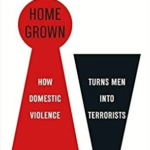Uninformed citizens do not bode well for the health of our societies

Congratulations – reading this magazine probably means you care about what is going on in the world. According to recent studies, more people than ever are choosing to bury their heads in the sand. “News avoidance” refers to people who at least sometimes actively avoid the news – and levels of it have been steadily rising since the Reuters Institute for the Study of Journalism began tracking it back in 2012. This year, their annual survey suggests it has reached a record high – 39 per cent of people surveyed online across dozens of countries admitted to dodging the news, compared to 29 per cent in 2017.
Respondents said they feel “worn out” by the news; the sheer volume of it is overwhelming and the nature of it makes them feel anxious and powerless. Just as worrying are those who have simply checked out. In the UK a decade ago, 70 per cent of people said they were “extremely” or “very” interested in the news. Now, it’s just 38 percent. Although the UK has seen a particularly drastic drop, the same trend is happening across almost all countries surveyed.
There might be many understandable reasons for this – the chaotic state of the world; the increasing use of smartphones, making it feel harder to escape the 24/7 news cycle; the additional challenge of discerning what’s real from what’s fake. But it’s still a serious problem. This is an election super-year, with more than 70 countries going to the polls – including, soon, the US, in an election that will have global ramifications and where 43 per cent of people say they avoid the news.
Uninformed citizens do not bode well for the health of our societies, particularly if they have deliberately decided to disengage. Whether it’s listening to the news, or reading magazines like this one, we need to get people excited again about the world around them – even, and perhaps especially, if it can be a frightening place.
This article is from New Humanist’s autumn 2024 issue. Subscribe now.


